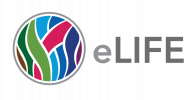© Pint of Science, 2024. All rights reserved.
Did you know the sequence of your genome could soon be used to treat any medical conditions you may have? Come join us for a exciting night of genome sequencing talks and find out how genomics could potentially transform healthcare through personalised medicine and through the use of a crowd sourced app, sort of like a Trip Advisor for genes! During the event, there will be Pint of Science and eLife goodies to be won!
Genome sequencing – is it the missing link to delivery of personalised healthcare?
Professor Tim Hubbard
(Professor of Bioinformatics & Head of Genome Analysis at Genomics England)
The cost of a complete human genome sequence will soon be less than that of a Prada purse, becoming an attractive tool for disease prediction. Unlike a fashionable gadget, a genome sequence can be everlasting in its utility, used to assess multiple treatment options throughout a person’s life. Informatics tools linking patient records and genomic information offer to transform healthcare. Come to this Pint of Science talk to find out whether precision medicine is just around the corner!
Crowdsourcing the secrets of your genome
Dr Ellen McDonagh
(Head of Curation at Genomics England)
Your genome holds all the secrets: It reveals your ancestry, disease susceptibility, response to medication and what your kids could be like. Today, genomes are used in the clinic to diagnose patients, or learn about how a patient’s disease developed to prescribe treatment. The 100,000 Genomes Project aims to make genome analysis the reality within tomorrow’s NHS. One tool to help with this, is called “PanelApp”. It aims to croudsource expert opinion on which genes have strong evidence for a role in a disease. It is publically-available, allowing sharing of this knowledge across countries.
Map data © OpenStreetMap contributors.

